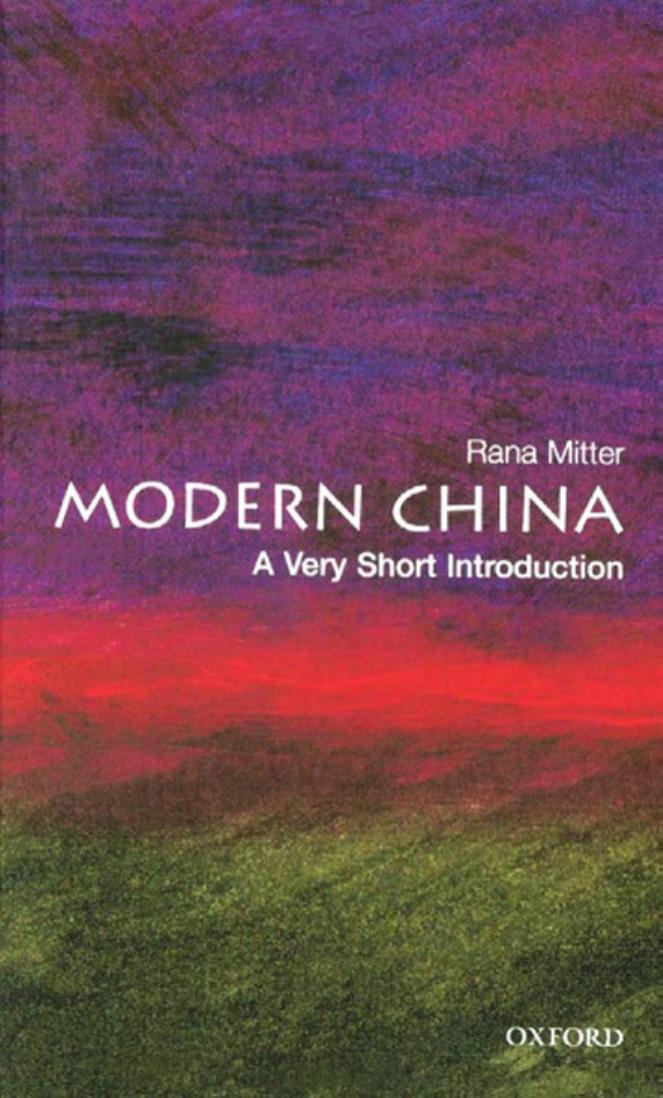Modern China: A Very Short Introduction by Rana Mitter

Author:Rana Mitter
Language: eng
Format: epub, pdf
ISBN: 9780198753704
Publisher: OUP Oxford
Published: 2015-12-17T05:00:00+00:00
unable to come to any understanding of the fact that China’s problems are also the problems of the world capitalist market … Finally, it was unable to recognize the futility of using the West as a yardstick in the critique of China.
But in many ways, China is far more influenced by globalized modernity than even in the 1980s. China has placed scientific development at the centre of its quest for growth, sending students abroad not in their hundreds, but tens of thousands, to study science and technology, just as the Nationalist government of the 1930s tried to develop an indigenous core of engineers and technicians.
The country also has a powerful international role in the early 21st century. China has sought economic and diplomatic influence in Africa and South America, taking advantage of a general suspicion in the Global South of the Western post-Cold War order. However, China’s international influence has been hampered by two tendencies. In areas outside Asia, China’s preference is for remaining neutral but friendly, and to commit to few outright statements of policy: yet crises in the Middle East, the Korean peninsula, and Ukraine, and the scramble for mineral resources in Africa and energy resources around the globe may make it harder to claim a status as a world power without providing action or using influence. Meanwhile, Chinese actions in its own backyard in the early 2010s, in particular territorial and maritime claims in the East and South China Seas, have made some neighbouring countries wary of growing Chinese influence in the region, particularly as its defence budget soars (it was US$131 billion in 2014). Although Chinese behaviour in Asia veers between hard and soft tactics, it is still unclear whether Beijing has worked out a real strategy to increase its influence in the region through consensus rather than coercion.
Nationalism has also become a popular rallying-cry at home. This does not necessarily mean xenophobia or anti-foreignism, although there are occasions (such as the reaction to the 1999 NATO bombing of the Chinese Embassy in Belgrade during the Kosovo War) that have led to violence against foreign targets and persons. But it is clear that China’s own people consider that the country’s moment has arrived, and that they must oppose attempts—whether by the West, or Japan—to prevent it taking centre stage in the region.
Download
Modern China: A Very Short Introduction by Rana Mitter.pdf
This site does not store any files on its server. We only index and link to content provided by other sites. Please contact the content providers to delete copyright contents if any and email us, we'll remove relevant links or contents immediately.
| Africa | Americas |
| Arctic & Antarctica | Asia |
| Australia & Oceania | Europe |
| Middle East | Russia |
| United States | World |
| Ancient Civilizations | Military |
| Historical Study & Educational Resources |
The Sympathizer by Viet Thanh Nguyen(4385)
The Rape of Nanking by Iris Chang(4203)
World without end by Ken Follett(3474)
Ants Among Elephants by Sujatha Gidla(3463)
Blood and Sand by Alex Von Tunzelmann(3196)
Japanese Design by Patricia J. Graham(3167)
The Queen of Nothing by Holly Black(2588)
City of Djinns: a year in Delhi by William Dalrymple(2555)
Foreign Devils on the Silk Road: The Search for the Lost Treasures of Central Asia by Peter Hopkirk(2463)
India's Ancient Past by R.S. Sharma(2451)
Inglorious Empire by Shashi Tharoor(2437)
Tokyo by Rob Goss(2427)
In Order to Live: A North Korean Girl's Journey to Freedom by Yeonmi Park(2387)
Tokyo Geek's Guide: Manga, Anime, Gaming, Cosplay, Toys, Idols & More - The Ultimate Guide to Japan's Otaku Culture by Simone Gianni(2369)
India's biggest cover-up by Dhar Anuj(2351)
The Great Game: On Secret Service in High Asia by Peter Hopkirk(2345)
Goodbye Madame Butterfly(2251)
Batik by Rudolf Smend(2179)
Living Silence in Burma by Christina Fink(2068)
